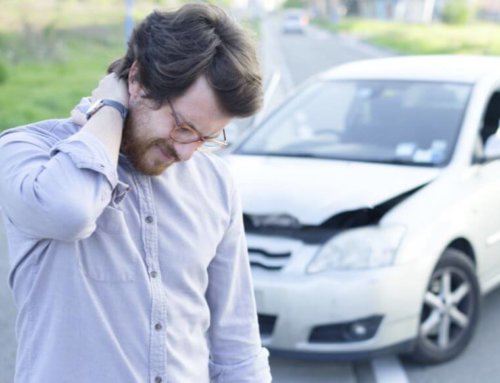There will be some fellow solicitors and some members of the public too, shaking their heads in disbelief as they read this headline. After all, everyone must have seen the adverts on TV for No Win, No Fee personal injury claims? Then there are the ads on social media that bombard our Facebook and Twitter pages. Everyone seems to have an opinion about accident claims. Presumably then, everyone knows the answer to the question posed by the headline of this article.
We don’t believe that they do.
As personal injury lawyers, we are sometimes guilty of assuming too much. We assume that everyone knows what a ‘non-fault accident’ is, what a ‘whiplash injury‘ is, how the claims process works and whether someone has a valid claim for personal injury compensation following some kind of accident. They don’t and why should they? For personal injury solicitors, it’s our business to know everything there is to know about personal injury law, accident claims and how to obtain the maximum possible accident injury compensation for injured people. It’s a job. For most of everyone else, they are unlikely to spend any time thinking about accident claims, unless they have an accident and get injured themselves!
For the sake of this article, we are going to try and assume nothing. If by doing that, just one person who previously thought that they didn’t have grounds for making a personal injury claim, finds out that they can, then this article will have been worthwhile. It will be even better if they then go on to make a successful personal injury claim. Better still if they decide to ask Mooneerams specialist personal injury solicitors, to help them with their claim!
What is a personal injury claim?
When someone decides to make a personal injury claim it is because:
- they were injured,
- in an accident, that was caused by
- another party or organisation.
What do we mean by personal injury?
According to the Cambridge online dictionary, it is defined as meaning:
“Physical or mental harm that is caused to someone, especially when this is the fault of another person or organisation.”
Why does it say, ‘the fault of another person or organisation’?
Often an accident will be entirely the fault of an individual in their private capacity. An example of this would be if someone drove into the rear of your stationary car, whilst you were waiting at traffic lights and they were driving their own car. In this situation, if you suffered an injury as a result of the accident, then you would make a claim against the driver.
If you were employed in a factory and you slipped on a patch of oil that had been left on the workshop floor, and as a result, you break an arm when falling, then fault for the accident is likely to lie with your employer. It may have been someone’s specific job to ensure that the oil was cleared before anyone could have slipped on it, but your employer would still be liable, for failing to ensure that the floor was cleaned.
Your employer owes you what is called a ‘duty of care’. The employer’s duty of care is to provide you with a safe environment within which to work. Any personal injury claim you decided to make would be brought against the employer.
Sometimes, accidents at work are caused by the negligence of a fellow employee. For example, if a forklift truck driver carrying pallets, collides with a fellow employee, because he drove carelessly, then there may be a possible claim by the injured employee for an accident at work. Would the employee start a claim against the individual or against the employers? It would be a claim against the employers.
Although the accident was caused by an individual, the employers are said to be ‘vicariously liable’ for the negligent acts of their employee. ‘Vicarious liability’ is where someone is held responsible for the actions of another person. In this case, the employer owes his employees a duty of care to ensure their safety whilst at their place of employment. That duty extends to ensuring that they are not injured by their fellow workers.
Must someone else always be to blame in order to make a claim?
Absolutely. There is some merit in asking the question though. In New Zealand, there is a no-Fault Compensation Scheme for medical injuries. Whereas in the English/Welsh legal system, negligence has to be proved before a claim for medical negligence injury compensation can succeed, in New Zealand, this is not the case. Instead, those injured in medical accidents receive government-funded compensation. There is no need to prove that a doctor, nurse or other healthcare professional was negligent.
Under the law of England and Wales, someone has to be at fault before a claim can be made. If there’s no blame, then there’s no claim.
Can I still make a personal injury claim if I am partly to blame for the accident?
It’s not always the case that accidents are entirely the fault of one party. Sometimes, blame has to be apportioned between those involved.
Road traffic accidents sometimes occur because both or all parties to the accident in some way contributed to the collision.
Injuries sustained in accidents at work sometimes happen because although the employer was mainly at fault for the accident, the worker still contributed to it by, for example, failing to adhere to training and instruction that he had been provided with.
The legal term for this is ‘contributory negligence. ‘In our example, the employer is arguing that contributory negligence should apply. If the employee brings a workplace accident claim for compensation for the injuries he suffered in the accident and the court decides that he did contribute to the accident, then it will go on to decide to what extent he was partially to blame. It will express this as a percentage.
For argument’s sake, if our worker is held to be 40% liable for the accident, and his compensation claim is valued at £10000, then the court will knock the compensation award (damages) down by 40%. This means that the employee in our example will only receive £6000 in compensation, rather than £10000. He will though still at least receive some compensation. If he had been sufficiently discouraged by the employer’s allegation of contributory negligence, to decide not to proceed with the claim, he would have got nothing.
Any party who argues contributory negligence still has to prove their case, in the same way, that the person who is making the personal injury claim has to prove theirs. Contributory negligence can be argued by insurance companies or their solicitors as a tactic, a means of trying to put the injured party off continuing to claim. When the matter is pressed, sometimes the argument for contributory negligence gets dropped.
Cases involving contributory negligence can become complicated. Seeking advice from an experienced personal injury solicitor is strongly advisable in any case where liability is an issue. Call Mooneerams on 029 2048 3615, for free initial accident claim advice.
Can I make a claim for personal injury without having to have a medical examination?
If you are the claimant in a personal injury case, it is up to you to prove every aspect of your case. Therefore, if you have suffered a personal injury and wish to claim compensation for ‘pain, suffering and loss of amenity’, then you have to prove :
- That you have an injury that was caused by the accident, and;
- The extent of that injury
To do this you will need to give permission for both your own solicitor and the other party’s solicitor/insurers to have access to your medical records. Why? Remember that you have to prove that the accident caused the injuries that you are claiming for. Your medical records will help to confirm that (or not, as the case may be!)
At a relatively early stage in the personal injury process, you will be required to attend at a consultant surgeons consulting rooms for a medical examination. The purpose of this will be to enable the consultant to prepare a report on the injuries that you sustained in the accident. The report then becomes an important part of your evidence. Your solicitors will use the report to help them place a value on your claim for the purposes of negotiating with the other party’s solicitors or of deciding whether the case might need to go to court. If the case goes to court, your medical evidence will be there for the judge to see in your medical reports.
It’s quite often the case that you will need to go for follow up reports if your injuries are likely to take some time to recover from. If you have suffered multiple injuries, you may need to see a number of consultants in the different specialist fields of medicine that apply to your case.
What’s the time limit for making a personal injury claim?
In the case of most personal injury claims arising out of road traffic accidents, accidents at work and accidents in public places, the time limit for starting a claim is 3 years from the date of the accident . This is called the ‘limitation’ period. There are some exceptions to this rule specifically in cases such as industrial deafness or asbestos disease claims, where the illness/disease sometimes only gets diagnosed many years after the incident that caused it. In those cases, the 3 year period starts from the victim’s date of knowledge that their illness was caused by exposure to excessive noise or asbestos exposure (in the two examples we have cited).
There are other exceptions in relation to children under 18 bringing injury claims and for some persons under a mental health disability. The 3-year limitation period for children only starts on their 18th birthday. In the case of persons under a disability, the 3-year period only starts when their disability comes to an end. If the disability is likely to be permanent, then the limitation period never comes into play.
Our advice would be to consult a solicitor with a view to starting a claim for personal injury as soon after the accident or incident in question. Limitation periods are there as a backstop. Starting a claim at an early stage means that the accident that gave rise to the claim will still be fresh in all witnesses’ minds.
I think I may have an injury claim, what shall I do?
Get in touch with a specialist personal injury solicitor, as soon as possible. Moonerams have specialised in personal injury law claims since 2002. We offer you free legal advice during your first call to us and then if we think you have a case to pursue, we’ll take your claim on using a No Win, No Fee agreement if you would like us to. You’ve nothing to lose by calling us on 029 2048 3615 and hopefully a lot to gain! You’ll speak to an experienced personal injury solicitor from the first call. Our lawyers are exceedingly friendly. You’ll enjoy talking to them.
If you’d prefer us to call you, just leave your contact details on the form on this page. We’ll call you back, at your convenience.






